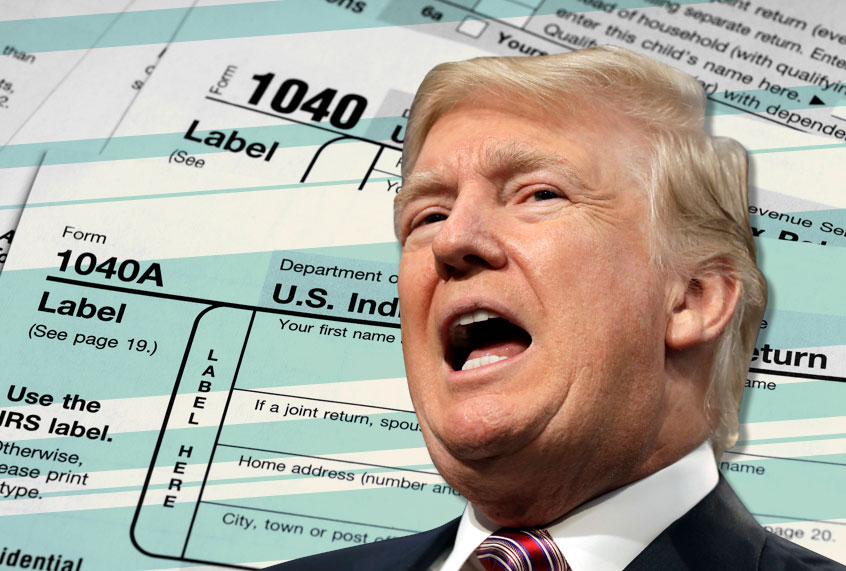The U.S. Court of Appeals for the Second Circuit on Monday granted President Donald Trump an eleventh-hour reprieve in his effort to block New York prosecutors from obtaining his tax returns.
The stay was issued just moments after a federal judge rejected Trump’s argument that sitting presidents are immune from criminal investigations.
As a result of the emergency appeal, Mazars USA, the president’s longtime accounting firm, does not have to turn over the president’s financial records to the Manhattan district attorney’s office by 1 p.m. ET on Monday, as was required. A panel of appellate judges will conduct an “expedited review” of the case and then issue a ruling.
Trump appeared to respond to the federal judge’s order on Twitter.
“The Radical Left Democrats have failed on all fronts, so now they are pushing local New York City and State Democrat prosecutors to go get President Trump,” he wrote. “A thing like this has never happened to any President before. Not even close!”
The Radical Left Democrats have failed on all fronts, so now they are pushing local New York City and State Democrat prosecutors to go get President Trump. A thing like this has never happened to any President before. Not even close!
— Donald J. Trump (@realDonaldTrump) October 7, 2019
The Manhattan district attorney, Cyrus Vance Jr., is seeking eight years of the president’s personal and corporate tax returns, dating to 2011. He issued a grand jury subpoena for the documents to Mazars USA a little over one month ago.
Vance has has been investigating whether Trump and his company violated any New York State laws when they reimbursed the president’s former lawyer and “fixer,” Michael Cohen, for payments he made to two women who alleged extramarital affairs with Trump in the lead up to the 2016 presidential election.
Trump has denied having affairs with the women, adult film actress Stormy Daniels and former Playboy model Karen McDougal.
Cohen is currently serving a three-year prison sentence after pleading guilty last year to multiple crimes, including breaking federal campaign finance laws related to the hush money payments.
Trump, who has vowed to fight off all investigations from prosecutors and congressional committees, has brought litigation against the investigators and the companies they had subpoenaed. He sued Mazars last month along with two of his banks to prevent them from complying with subpoenas for his financial records.
In this lawsuit, Trump’s legal team argued that Vance did not need eight years of the president’s tax returns to examine whether any laws were broken by the 2016 payments. It called the subpoena to Mazars a “bad faith effort to harass the president by obtaining and exposing his private financial information, not a legitimate attempt to enforce New York law.”
Trump’s lawyers have argued that the investigation by Vance, a Democrat, is politically motivated.
In a 75-page ruling Monday morning, Judge Victor Marrero called the president’s argument “repugnant to the nation’s governmental structure and constitutional values.” He added that Trump cannot endorse such a “categorical and limitless assertion of presidential immunity from judicial process.”
Marrero, who was appointed to the federal bench in 1999 by former President Bill Clinton, acknowledged that subjecting presidents to some aspects of criminal proceedings could interfere with presidential duties. But he rejected Trump’s assertion of “absolute immunity from criminal process of any kind.”
“As the court reads it, presidential immunity would stretch to cover every phase of criminal proceedings,” he wrote. “The constitutional dimensions of the presidential shield from judicial process are virtually limitless.”
Last week, a federal judge permanently blocked a California law that requires presidential candidates to disclose five years of their tax returns before appearing on the state’s election ballot. California Secretary of State Alex Padilla told the Los Angeles Times that he will appeal the ruling to the U.S. Court of Appeals for the 9th Circuit.
The president has filed a lawsuit challenging a New York law that allows Congress to request his state tax returns.

